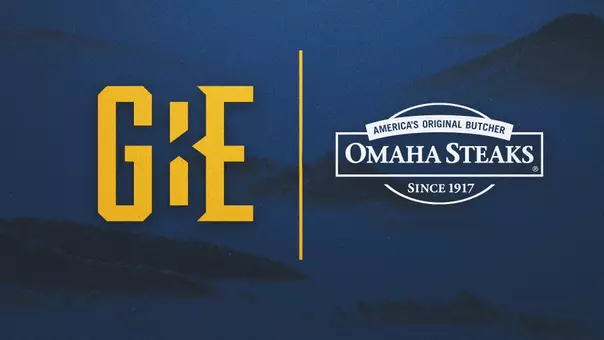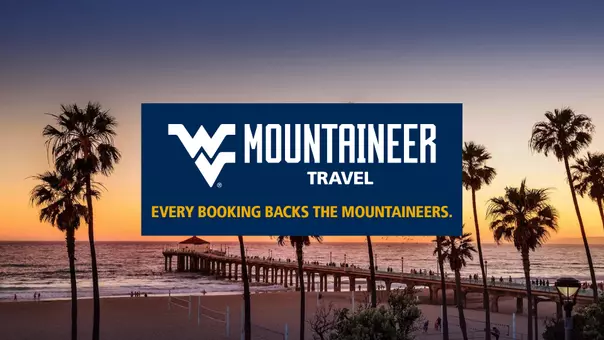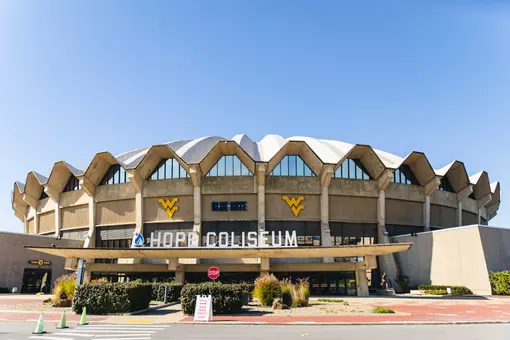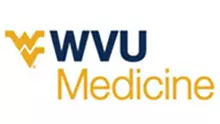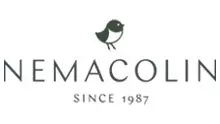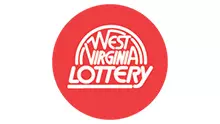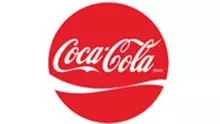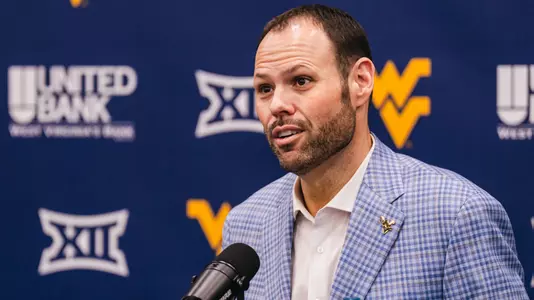
Photo by: WVU Athletic Communications
Money Matters, Part III
July 04, 2025 09:00 AM | General
Intercollegiate athletics have entered a historic new era after judge Claudia Wilken recently granted final approval to the $2.8 billion settlement of the class-action antitrust lawsuit House v. NCAA. Over three Fridays, we have been examining the immediate and future implications of the House Settlement and what it means for WVU athletics. This is the final installment.
MORGANTOWN, W.Va. – Last month, the West Virginia University Department of Intercollegiate Athletics announced the creation of Gold & Blue Enterprises, which, according to the press release announcing it, "is designed to revolutionize the student-athlete experience and enhance the Mountaineers' competitive edge in the evolving landscape of college athletics."
The concept of name, image and likeness (NIL) in collegiate sports began on July 1, 2021, when a Supreme Court ruling and the introduction of state laws forced the NCAA to implement a system for student-athletes to profit from their NIL rights.
Schools around the country began establishing NIL collectives to help navigate this new terrain by connecting student-athletes with businesses and facilitating deals for endorsements, appearances and other promotional activities.
The recently created Gold & Blue Enterprises is designed to generate new and diversified revenue streams for Mountaineer student-athletes while harnessing and strengthening the visibility of the WVU brand.
With the recent settlement of the House v. NCAA lawsuit, approved by Judge Claudia Wilken, student-athletes are now permitted to receive direct compensation of up to $20.5 million per institution beginning on July 1, 2025. Now college athletics will have two paths of compensation – one from institutions up to the cap and the other based on market-based endorsement agreements.
Gold & Blue Enterprises looks to maximize WVU's NIL opportunities with a full menu of features, including:
"Lots of athletic departments function as either a 501(c)(3) or as an outside LLC, but we don't," Baker said. "When you look at the new world of intercollegiate athletics as we move into a more professionalized model, we are going to need to engage in a lot more commercial activity. By way of example, Country Roads Trust has a deal in town with the GOAT, a pub and grill, that a certain percentage of their revenue is used for CRT's name, image and likeness, and a certain percentage of the sales goes back to CRT in the form of licensing.
Baker admits those are the types of commercial activities the athletics department needs to be exploring in this current climate.
"But that's hard to do through a traditional higher education structure," he noted. "And it's really different from the fundraising focus of the WVU Foundation, so (Gold & Blue Enterprises) creates an opportunity for us to have an outside organization that is still very much connected and controlled by the University and is still very much connected to the WVU Foundation. We will still route all our giving through the WVU Foundation, but it will allow us to pay our athletes out of there, first and foremost, while not having all the cumbersome processes that a typical university system requires."
Baker envisions Gold & Blue Enterprises potentially opening the door to some exciting new possibilities down the road.
"Does it make sense for us to develop some kind of entertainment district around our sports venues?" he said. "Is there enough space to do that? What would that take? Those are things that I think having this entity really allows us to live and breathe in an environment where commercial activity is important, and if we really want to be in a position to compete in the future, it' something that we are going to have to explore."
That's just one aspect of Gold & Blue Enterprises.
Baker indicated it will also serve as sort of a matchmaker between WVU's student-athletes and potential suitors for NIL deals.
"There may be student-athletes that get NIL deals on their own, and that's fine, but we want to have an in-house agency to where if we have a student-athlete with considerable Name, Image and Likeness brand, then we can say, 'Hey, Par Mar, Sheetz or Little General, here is this student-athlete who is available to really help promote your product,'" he mentioned.
Baker indicated there will likely be some sort of tracking function to the deals being made, although that's yet to be determined.
"They are still trying to figure out how much of that data they can give you without running afoul of antitrust issues, but I think the aggregate gross date we should be able to see," he said.
Establishing a flexible entity like Gold & Blue Enterprises has never been more important. Several Big 12 schools, led by Texas Tech, are aggressively developing their NIL efforts. The Red Raiders, for example, are projected to be one of the highest-paying programs because of the NIL resources for their student-athletes.
Tech signed nine of the 19 ESPN.com Top 100 football transfers entering the Big 12 this fall, and when it comes to NIL spending, it's clear the Red Raiders are all in.
"To the best that we can, we have tried to put ourselves somewhere in the middle," Baker said.
Baker admits his department's current budgetary situation doesn't afford him much flexibility, however.
"As I try to explain to our coaches sometimes, when you start off with a budget that's in the lower third of the conference, anywhere that you spend at the middle of the conference is somewhere that you have to spend down at the bottom to balance it out," he said. "All of the levers are connected."
He continued.
"If we have a coach who has an extraordinary season, wins the conference, and they come in and say, 'We finished first in the conference, and I'd like to be paid first in the conference.' That's a fair and reasonable ask. But what that means is somewhere else we're dead last because all those levers are connected, and you are constantly and consistently assessing opportunities in all programs, understanding that it's important that we try and have broad-based success, but also understanding that there are two programs (football and men's basketball) that are profitable.
"You cannot put those two programs in a place where they can't compete; that's a non-starter," he added.
As we move toward a more professionalized model for collegiate athletics, Baker believes it is possible to embrace the future while maintaining many of the traditional values to which fans have grown accustomed.
"This is different, and I know that change is not necessarily universally welcomed," he admits. "Fans are getting to learn entirely new rosters. You look at our men's basketball program and it's been an entirely new roster for three consecutive years. That's hard, and I recognize that, but if you go to practice, you will see people who are growing and developing as leaders through sports.
"They are having to mesh personal goals with team goals," he continued. "They are having to take constructive criticism. They are getting picked up by their teammates and by their coaches and you are seeing people being developed as leaders through intercollegiate athletics. I still believe college athletics is one of the last remaining great systems to develop leaders."
Baker used the example of his two daughters to drive home his point.
"I'm always amazed, but it's like 70%, or maybe even higher, female CEOs today were former athletes, and I tell my kids all the time, it doesn't have to be a certain sport, but by interacting in a setting that is similar to college athletics where you take constructive criticism, you have to get along with different personalities, it's integral to your development as a person and to have a successful life," he explained.
He maintains these things still exist in the current collegiate environment.
"Does it look different? Yes. Are we spending more time talking about the monetary value versus just being connected to an institution and its culture? Yes. Is the framework still the same? Can people still come here and care about West Virginia University, care about this state and develop as leaders while earning income? Yes, that can be done, and we're working really, really hard to still have those core values in this new world."
He concluded with a message to his coaches, "One of the challenges for our coaches is being the ambassadors of our culture. I think there is probably more of an onus now put on our coaches to be the ambassadors of our culture because of the continual churning of the rosters."
MORGANTOWN, W.Va. – Last month, the West Virginia University Department of Intercollegiate Athletics announced the creation of Gold & Blue Enterprises, which, according to the press release announcing it, "is designed to revolutionize the student-athlete experience and enhance the Mountaineers' competitive edge in the evolving landscape of college athletics."
The concept of name, image and likeness (NIL) in collegiate sports began on July 1, 2021, when a Supreme Court ruling and the introduction of state laws forced the NCAA to implement a system for student-athletes to profit from their NIL rights.
Schools around the country began establishing NIL collectives to help navigate this new terrain by connecting student-athletes with businesses and facilitating deals for endorsements, appearances and other promotional activities.
The recently created Gold & Blue Enterprises is designed to generate new and diversified revenue streams for Mountaineer student-athletes while harnessing and strengthening the visibility of the WVU brand.
With the recent settlement of the House v. NCAA lawsuit, approved by Judge Claudia Wilken, student-athletes are now permitted to receive direct compensation of up to $20.5 million per institution beginning on July 1, 2025. Now college athletics will have two paths of compensation – one from institutions up to the cap and the other based on market-based endorsement agreements.
Gold & Blue Enterprises looks to maximize WVU's NIL opportunities with a full menu of features, including:
- Comprehensive NIL support with educational and compliance services and personalized brand development to help maximize NIL opportunities
- Facilitating strategic partnerships by collaborating with leading marketing and advertising agencies to connect student-athletes with corporate partners
- Establishing an innovative business structure using a private sector approach, integrating sales, media, marketing and business operations to help drive additional revenue to support the long-term sustainability of WVU athletics
- Leadership and governance to oversee Gold & Blue Enterprises, ensuring alignment with WVU's mission and values while fostering a culture of innovation and excellence
"Lots of athletic departments function as either a 501(c)(3) or as an outside LLC, but we don't," Baker said. "When you look at the new world of intercollegiate athletics as we move into a more professionalized model, we are going to need to engage in a lot more commercial activity. By way of example, Country Roads Trust has a deal in town with the GOAT, a pub and grill, that a certain percentage of their revenue is used for CRT's name, image and likeness, and a certain percentage of the sales goes back to CRT in the form of licensing.
Baker admits those are the types of commercial activities the athletics department needs to be exploring in this current climate.
"But that's hard to do through a traditional higher education structure," he noted. "And it's really different from the fundraising focus of the WVU Foundation, so (Gold & Blue Enterprises) creates an opportunity for us to have an outside organization that is still very much connected and controlled by the University and is still very much connected to the WVU Foundation. We will still route all our giving through the WVU Foundation, but it will allow us to pay our athletes out of there, first and foremost, while not having all the cumbersome processes that a typical university system requires."
Baker envisions Gold & Blue Enterprises potentially opening the door to some exciting new possibilities down the road.
"Does it make sense for us to develop some kind of entertainment district around our sports venues?" he said. "Is there enough space to do that? What would that take? Those are things that I think having this entity really allows us to live and breathe in an environment where commercial activity is important, and if we really want to be in a position to compete in the future, it' something that we are going to have to explore."
That's just one aspect of Gold & Blue Enterprises.
Baker indicated it will also serve as sort of a matchmaker between WVU's student-athletes and potential suitors for NIL deals.
"There may be student-athletes that get NIL deals on their own, and that's fine, but we want to have an in-house agency to where if we have a student-athlete with considerable Name, Image and Likeness brand, then we can say, 'Hey, Par Mar, Sheetz or Little General, here is this student-athlete who is available to really help promote your product,'" he mentioned.
Baker indicated there will likely be some sort of tracking function to the deals being made, although that's yet to be determined.
"They are still trying to figure out how much of that data they can give you without running afoul of antitrust issues, but I think the aggregate gross date we should be able to see," he said.
Establishing a flexible entity like Gold & Blue Enterprises has never been more important. Several Big 12 schools, led by Texas Tech, are aggressively developing their NIL efforts. The Red Raiders, for example, are projected to be one of the highest-paying programs because of the NIL resources for their student-athletes.
Tech signed nine of the 19 ESPN.com Top 100 football transfers entering the Big 12 this fall, and when it comes to NIL spending, it's clear the Red Raiders are all in.
"To the best that we can, we have tried to put ourselves somewhere in the middle," Baker said.
Baker admits his department's current budgetary situation doesn't afford him much flexibility, however.
"As I try to explain to our coaches sometimes, when you start off with a budget that's in the lower third of the conference, anywhere that you spend at the middle of the conference is somewhere that you have to spend down at the bottom to balance it out," he said. "All of the levers are connected."
He continued.
"If we have a coach who has an extraordinary season, wins the conference, and they come in and say, 'We finished first in the conference, and I'd like to be paid first in the conference.' That's a fair and reasonable ask. But what that means is somewhere else we're dead last because all those levers are connected, and you are constantly and consistently assessing opportunities in all programs, understanding that it's important that we try and have broad-based success, but also understanding that there are two programs (football and men's basketball) that are profitable.
"You cannot put those two programs in a place where they can't compete; that's a non-starter," he added.
As we move toward a more professionalized model for collegiate athletics, Baker believes it is possible to embrace the future while maintaining many of the traditional values to which fans have grown accustomed.
"This is different, and I know that change is not necessarily universally welcomed," he admits. "Fans are getting to learn entirely new rosters. You look at our men's basketball program and it's been an entirely new roster for three consecutive years. That's hard, and I recognize that, but if you go to practice, you will see people who are growing and developing as leaders through sports.
"They are having to mesh personal goals with team goals," he continued. "They are having to take constructive criticism. They are getting picked up by their teammates and by their coaches and you are seeing people being developed as leaders through intercollegiate athletics. I still believe college athletics is one of the last remaining great systems to develop leaders."
Baker used the example of his two daughters to drive home his point.
"I'm always amazed, but it's like 70%, or maybe even higher, female CEOs today were former athletes, and I tell my kids all the time, it doesn't have to be a certain sport, but by interacting in a setting that is similar to college athletics where you take constructive criticism, you have to get along with different personalities, it's integral to your development as a person and to have a successful life," he explained.
He maintains these things still exist in the current collegiate environment.
"Does it look different? Yes. Are we spending more time talking about the monetary value versus just being connected to an institution and its culture? Yes. Is the framework still the same? Can people still come here and care about West Virginia University, care about this state and develop as leaders while earning income? Yes, that can be done, and we're working really, really hard to still have those core values in this new world."
He concluded with a message to his coaches, "One of the challenges for our coaches is being the ambassadors of our culture. I think there is probably more of an onus now put on our coaches to be the ambassadors of our culture because of the continual churning of the rosters."
WRES: Oklahoma State Hype Video
Saturday, December 13
Post Game Press Conference | Georgia Tech
Friday, December 12
United Bank Playbook: Ohio State Preview
Thursday, December 11
TV Highlights: WVU 90, Little Rock 58
Wednesday, December 10
